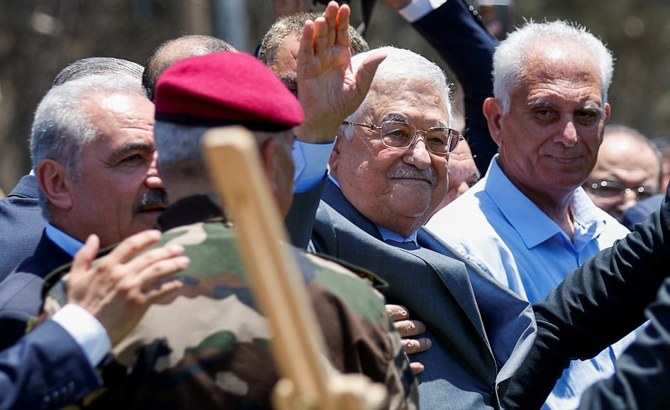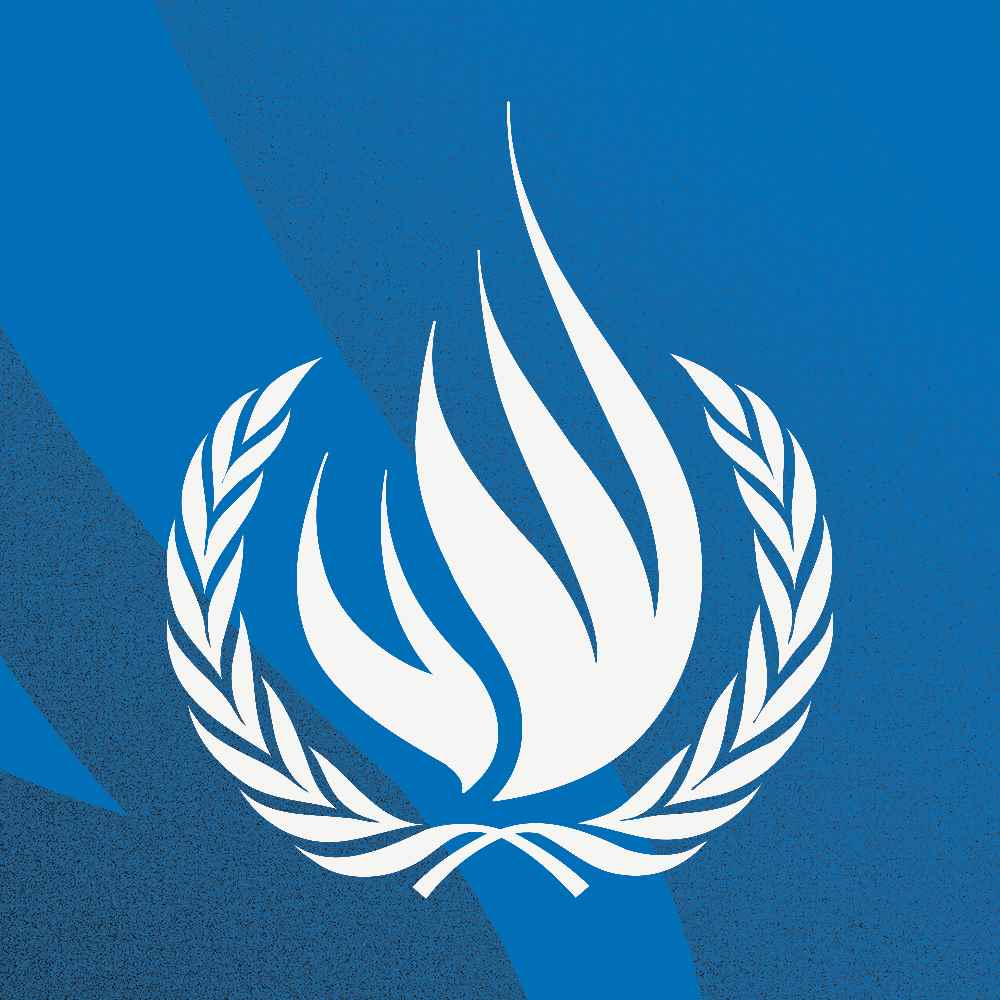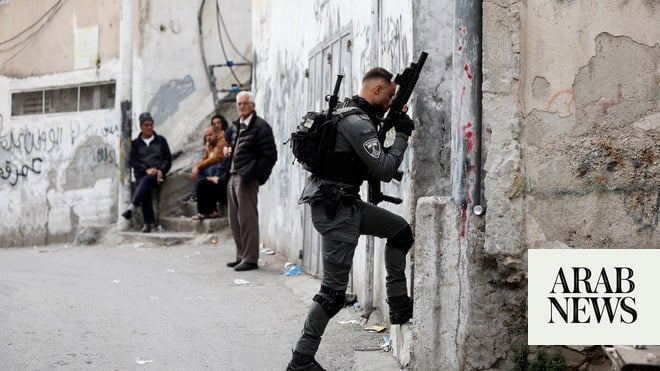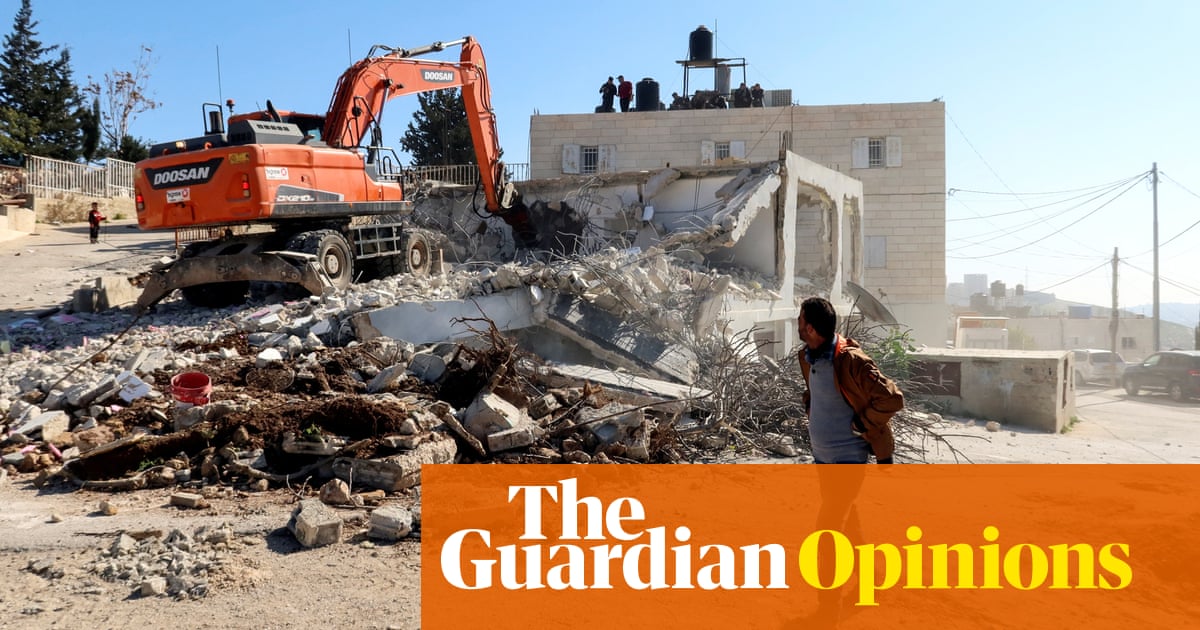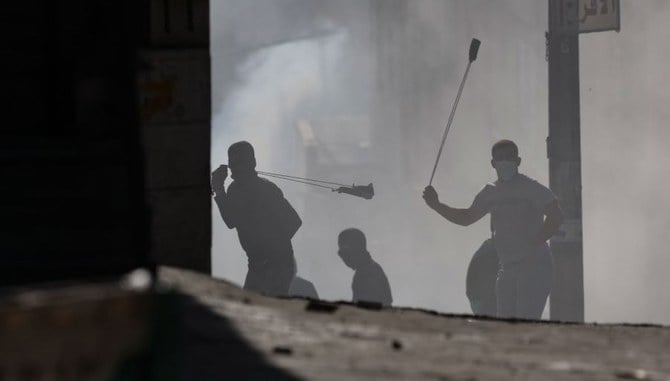
The killing by Israeli soldiers of nine Palestinians in the West Bank city of Jenin on Thursday and the continuation of the cycle of violence reflects the continued Israeli denial of Palestinian nationalism. It flies directly in opposition to what Israelis and Palestinians and the rest of the world believe is the only tangible way out of the cycle of violence: Two independent states alongside each other.
The idea of Palestinians and Israelis respecting each other’s nationalism and living side by side was the subtext of the shaky 1993 handshake between Yitzhak Rabin and Yasser Arafat on the White House lawn. Following the exchanged letters of recognition a day earlier, the Declaration of Principles was signed on Sept. 13, 1993, by Shimon Peres and Mahmoud Abbas and witnessed by US President Bill Clinton. It translated mutual recognition into what are now called the Oslo Accords.
A five-year interim period began in Gaza and Jericho with a passenger corridor between the West Bank and Gaza. An airport was opened and peace was in the air. All this was supposed to be followed — so it was thought — by the inauguration of a democratic state of Palestine alongside the state of Israel. A single Jewish Israeli extremist extinguished this hope by assassinating Rabin. And a frustrated Palestinian faction subsequently resorted to armed resistance. With Rabin gone and Peres unable to fill his shoes, the process began to unravel and the Israeli lust for land resurfaced.
What Palestinians have seen since is that Israel pockets its gains by subcontracting security to the Palestinian Authority without fulfilling the political portion of the deal, while also working hard to negate Palestinian nationalism and intensifying its oppression of Palestinian anti-settlement activities.
Pre-Oslo prisoners of Arafat and Abbas’ own Fatah party, who were promised they would be released, were kept in jail, despite promises to then-US Secretary of State John Kerry in 2014. Two were released over the past two weeks after spending 40-year lifetimes behind Israeli bars. Israel has banned Palestinian flags and even tried to knock down the coffin of the popular American Palestinian television journalist Shireen Abu Akleh because of the Palestinian flags on top. All this with the aim of trying to extinguish Palestinian nationalism, while the leading Israeli demagogue Benjamin Netanyahu took Israel to the far right and abandoned any progress toward the universally accepted two-state solution.
Palestinian cities that were the first to witness an Israeli evacuation were never left alone, as Israeli troops and security services regularly ransacked them — forcefully entering, demolishing homes, arresting whoever they wanted and leaving carnage behind. The West Bank was divided into areas A, B and C, with Area C, which constitutes more than 60 percent of the territory, being kept in the hands of the Israeli military. The Palestinians living there are denied building permits, while the settlers and settlements have tripled in size and number.
For years, the most moderate of all Palestinians, President Mahmoud Abbas, fought Hamas extremists and some of his own publicly denounced their useless rocket attacks. He lost Gaza in the process because of his firm belief in diplomacy. Abbas kept the security coordination intact despite strong calls from his own Palestine Liberation Organization’s national and central councils and all his PLO partners. His faith in the UN system and in international law brought scorn from Israelis, who saw in his principled stance a weakness rather than a strength. Palestinian nonviolent efforts through the UN have been called “diplomatic terrorism.” All Palestinian resistance to the Israeli occupation, whether violent or nonviolent and whether against soldiers or illegal settlers, was called terrorism.
Palestinians wanted to believe that UN Security Council Resolutions 904 of 1994 and 1073 of 1996 and the 2018 report by the UN secretary-general on the protection of the Palestinian people would safeguard them. They were hoping that the failure of the international community to protect Palestinians in Beirut in 1982, which caused the massacre of Sabra and Shatila, would never happen again. The fact that Palestinian civilians were left unprotected by the PLO failed because it was based on the futile promises of the international community.
The Fourth Geneva Convention and international humanitarian law generally state that an occupying power has no right to use lethal force against a civilian population unless deemed an absolute military necessity, and it has no right to conduct reprisals and collective punishment of the civilian population under its occupation.
The killing by Israeli forces of nine Palestinians in Jenin appears to have been the straw that broke the camel’s back, leading to the Palestinian leadership ending any form of cooperation with an occupier that only wants to have peace while also keeping Palestinian lands.
Abbas’ faith in the UN system and in international law brought scorn from Israelis, who saw in his principled stance a weakness rather than a strength.
Daoud Kuttab
Even the normally silent International Committee of the Red Cross had to express deep concern about the events in Jenin. “The number of civilians injured and killed due to the intensification of armed violence in parts of the West Bank has significantly increased over the past weeks,” said Arnaud Meffre, the organization’s West Bank head. “We remind all armed actors of their obligations to respect and protect civilians and their property,” he added. The International Committee of the Red Cross even went one step further and condemned the Israeli decision to prevent access to medical personnel, medical units and facilities, saying that medics “must be protected and respected in all circumstances to guarantee the affected communities’ continuing access to care.”
The insecurity and vulnerability of the Palestinians, as Israeli forces and settlers continue with their daily attacks against them, reinforce official Palestinian calls for international protection. The issue of the right of the people to protect themselves, including to defend themselves from the aggressions of the Israeli occupation, cannot be ignored. Throughout history, people under occupation and facing such brutality have concluded that they can only depend on themselves for protection and not any outside force.
The latest killings in Jenin forced President Abbas to totally abandon the security coordination that was enshrined following that shaky handshake. The Israelis have complained about the recent call by the world community to ask the International Court of Justice to define the status of the areas that Israel took by force in June 1967. If anyone has any doubt about the fact that Palestinian lands are occupied by a foreign military force, they are politically blind. The time has come to provide neutral and independent protection to Palestinians under occupation until a political solution can be found.
Daoud Kuttab is a Palestinian journalist from Jerusalem. He is a former Ferris Professor of Journalism at Princeton University. Twitter: @daoudkuttab





